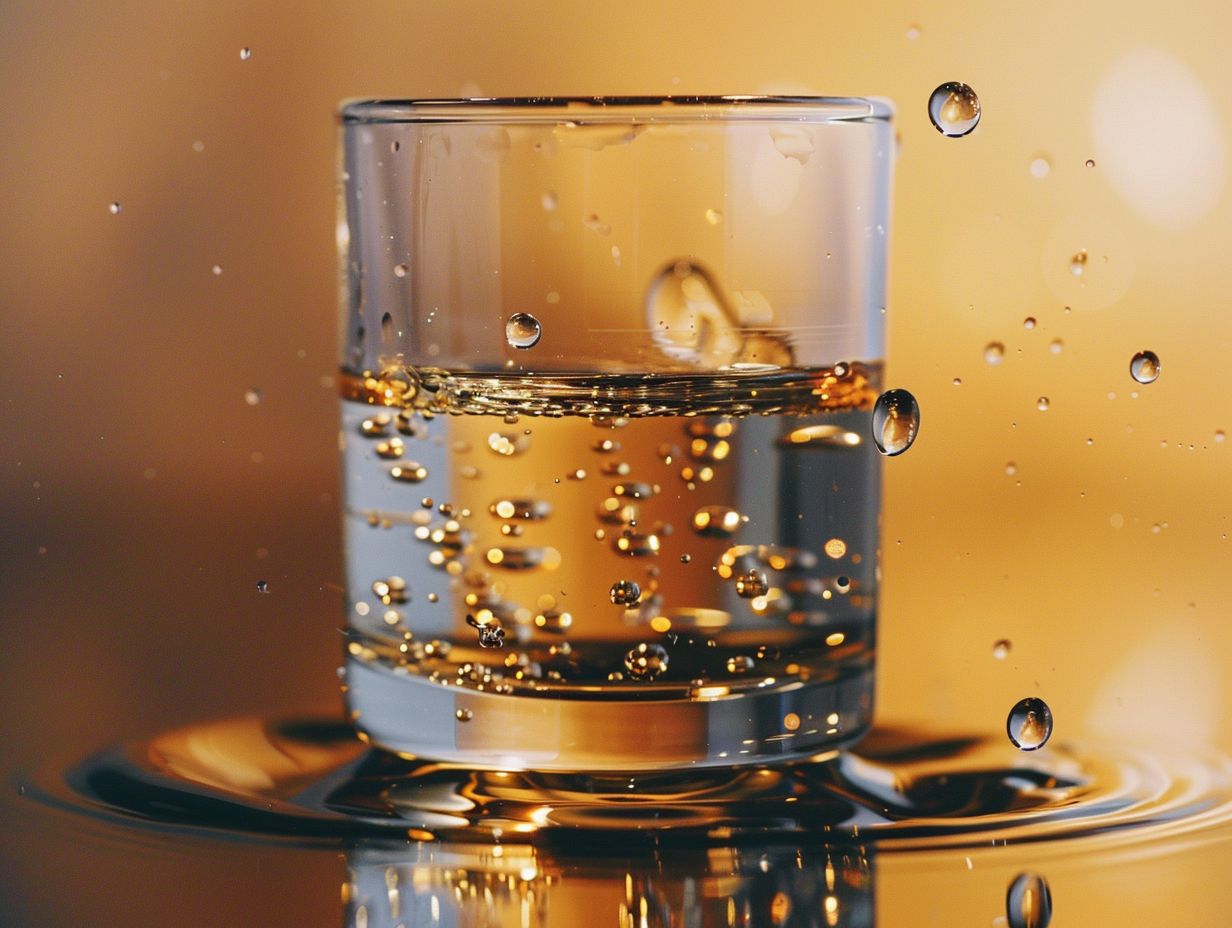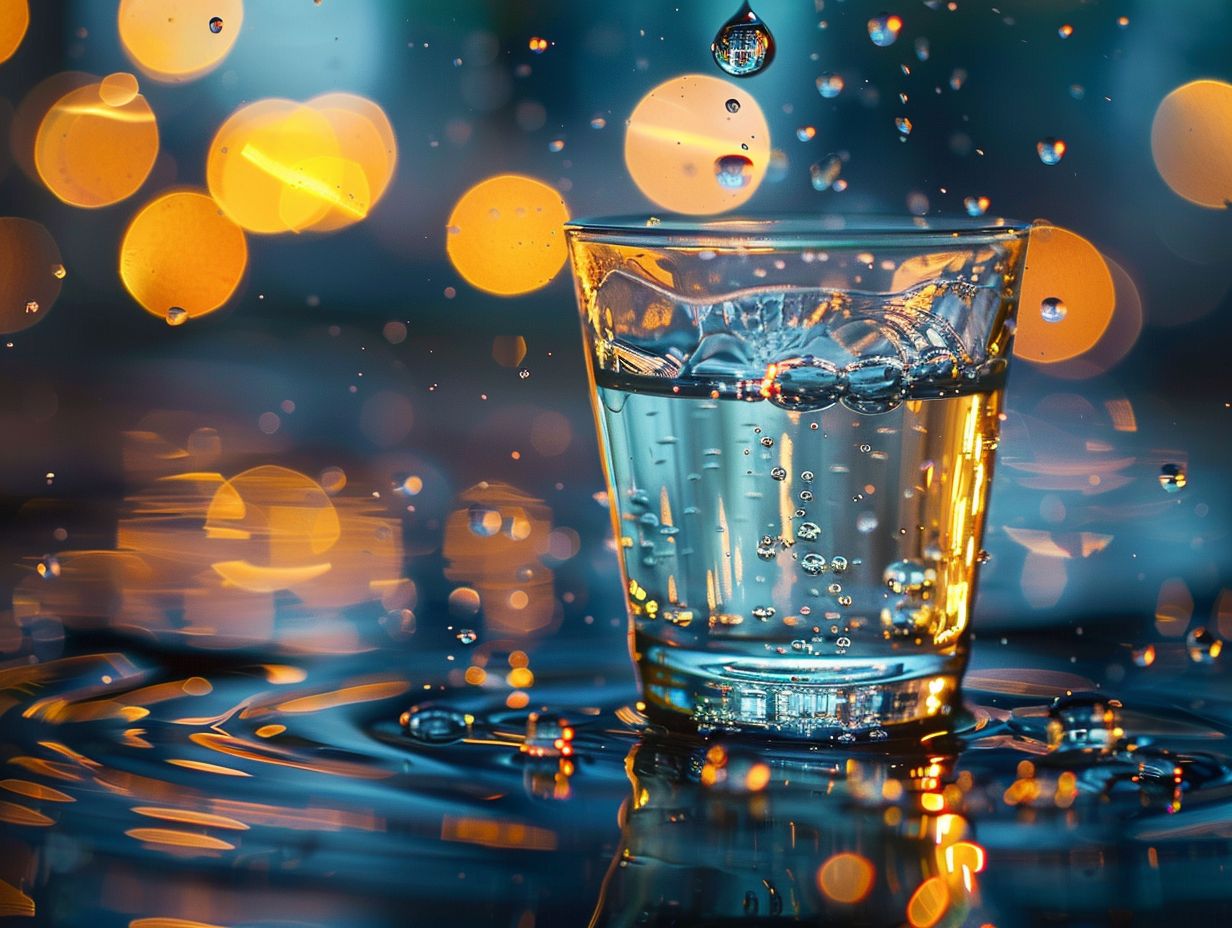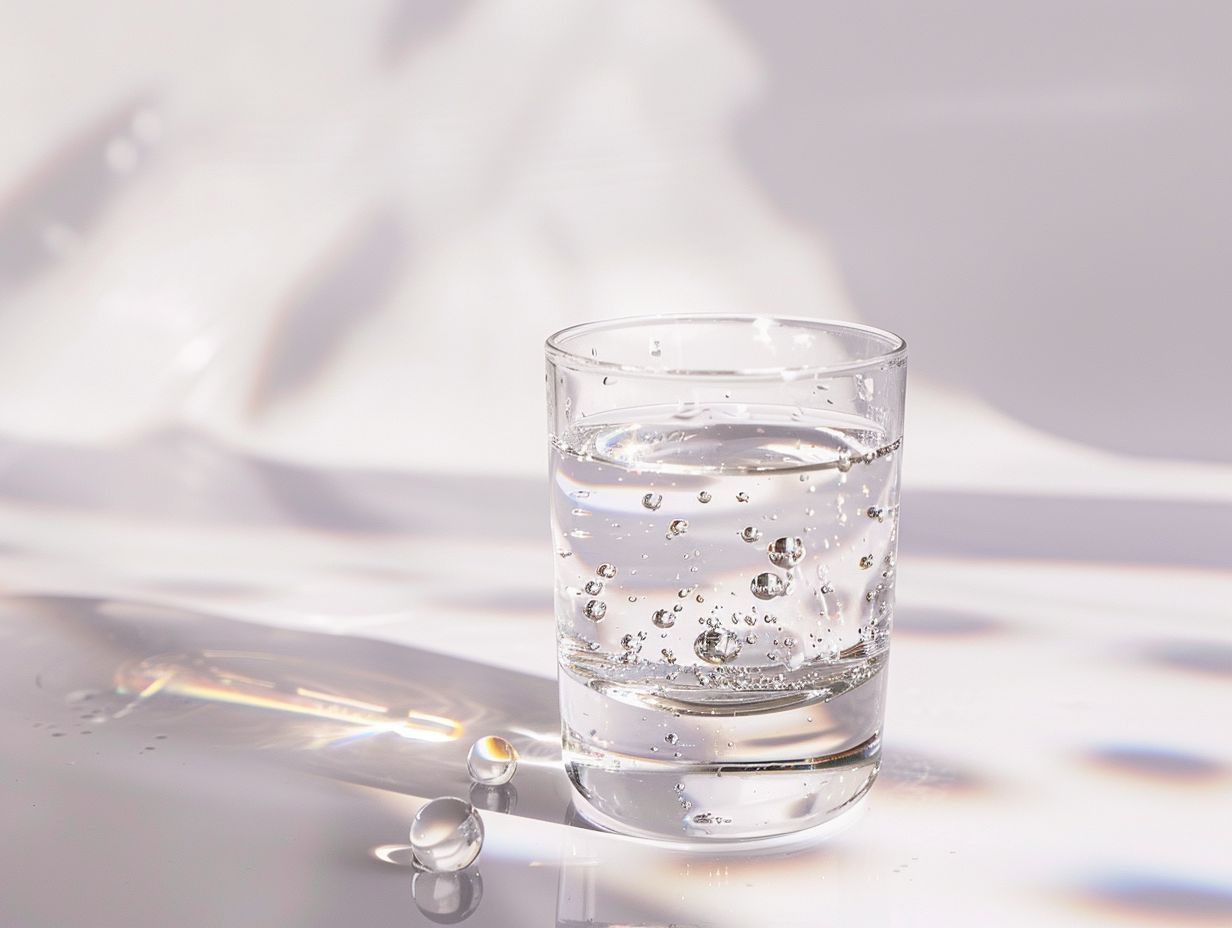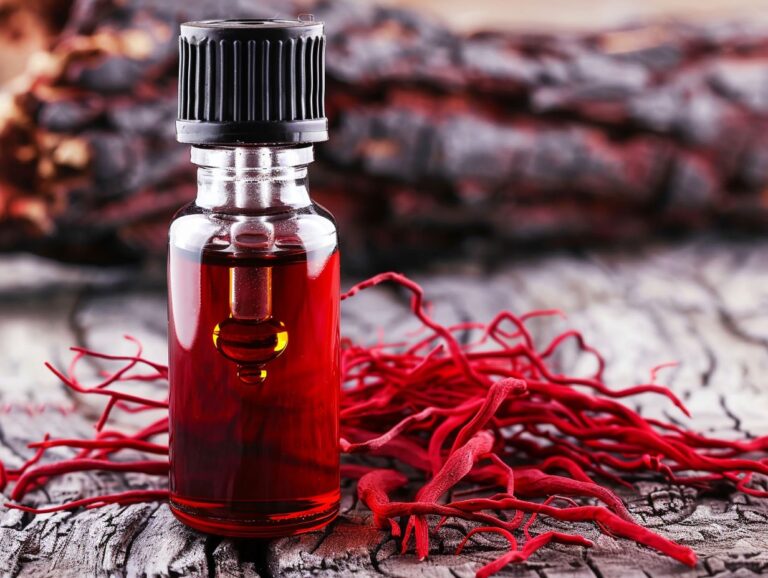Do Essential Oils Dissolve in Water
Ever wondered if essential oils can dissolve in water? This article explores the science behind the solubility of essential oils in water and the factors that influence it.
We discuss the benefits of using essential oils in water for aromatherapy and cleaning, as well as the risks associated with improper use.
Learn how to properly dilute essential oils in water and make the most of their therapeutic properties. Join us as we dive into the world of essential oils and water solubility!
Key Takeaways:
What Are Essential Oils?
Essential oils are natural aromatic compounds extracted from plants using various methods such as steam distillation or cold pressing. These oils capture the plant’s aroma, flavor, and beneficial properties.
One of the most remarkable qualities of essential oils is their diverse extraction techniques. While steam distillation remains one of the most common methods, cold pressing is utilized for citrus fruits like lemons and oranges. The process involves carefully heating the plant material to release its volatile compounds, which are then condensed into a potent liquid form. Various plant sources yield these oils, ranging from lavender and peppermint to eucalyptus and tea tree. These oils play a pivotal role in industries such as aromatherapy, where they are used for their therapeutic benefits, and in cosmetics and food for their fragrance and flavor-enhancing properties.
How Are Essential Oils Typically Used?
Essential oils are commonly used for their aromatic properties through diffusion in diffusers, topical application on the skin, or inhalation. They find applications in aromatherapy, personal care products, and even household cleaning products.
Regarding using essential oils, aromatherapy stands out as one of the most popular methods. This involves diffusing the oils into the air using a diffuser to create a calming or invigorating ambiance. Topical application, on the other hand, involves directly applying diluted essential oils onto the skin for various benefits ranging from skincare to muscle relaxation.
Inhalation involves breathing in the aromas of essential oils, which can have a direct effect on the mind and body. The wide range of applications of essential oils extends beyond personal use to various industries, including beauty, healthcare, and even food and beverages. From perfumes and lotions to candles, soaps, and even natural cleaning solutions, essential oils are versatile and in high demand.
Can Essential Oils Dissolve in Water?
The solubility of essential oils in water depends on various factors such as the chemical composition of the oil, temperature, pH levels, and the presence of emulsifiers or surfactants.
Understanding the solubility of essential oils in water involves looking at the interactions between the hydrophobic components present in the essential oils and the hydrophilic nature of water. Essential oils are primarily composed of volatile organic compounds that are not inherently soluble in water due to their non-polar nature. The temperature plays a crucial role as higher temperatures can increase the kinetic energy of the molecules, enhancing the solubility. PH levels can impact solubility as some essential oils are more soluble in acidic or alkaline environments.
The presence of emulsifiers or surfactants can aid in stabilizing the mixture of essential oils and water by reducing the surface tension between the two liquids, helping them to mix more efficiently. Emulsifiers work by forming a bridge between the oil and water molecules, allowing them to remain combined for longer periods. This principle is based on the concept of like dissolves like, where substances with similar polarities tend to mix more easily.
What Is The Science Behind Dissolving?
The science behind dissolving essential oils in water involves the interaction of oil molecules with the solvent medium and the breakdown of oil components into smaller particles such as granules or nanoemulsions. Mannitol can be used as a potential carrier for enhancing the solubility of essential oils.
Using solvents like ethanol or propylene glycol can significantly aid in the dissolution process by breaking down the oil molecules and facilitating their dispersion in water. Granulation processes such as spray drying or freeze-drying can further help in converting the oil components into easily dispersible forms, ensuring better solubility.
Improving stability of essential oils in water-based solutions involves techniques like microencapsulation, which create a protective barrier around the oil droplets, preventing degradation and oxidation. Incorporating solubilizers like polysorbate 80 or cyclodextrins can also enhance stability and prevent phase separation in the solution.
What Factors Affect The Solubility Of Essential Oils In Water?
Several factors influence the solubility of essential oils in water, including the chemical composition of the oil, the temperature of the water, the pH level, and the presence of emulsifiers or surfactants.
One of the key factors that affect solubility is the chemical composition of the essential oil. For instance, oils rich in monoterpene alcohols, such as linalool and geraniol, tend to be more soluble in water due to their hydrophilic nature. On the other hand, oils with a high content of sesquiterpenes, like vetiver or patchouli, are less soluble.
External conditions like temperature play a crucial role. Warm water can enhance solubility by increasing the kinetic energy of molecules, facilitating their dispersion.
The pH level of the water can influence solubility. Some oils may require a specific pH range for optimal solubility.
Certain emulsifiers or surfactants, such as polysorbate 80 or lecithin, can help stabilize the oil-water mixture and improve solubility, especially for oils with low water solubility.
Chemical Composition Of The Essential Oil

For example, citrus-based oils like lemon contain a higher concentration of hydrophilic components like alcohols and aldehydes, making them more soluble in water compared to oils rich in lipophilic compounds. Conversely, oils like lavender, known for their calming properties, have a greater percentage of lipophilic molecules such as terpenes and esters, resulting in a slower dissolution rate in aqueous environments.
The interplay between these hydrophilic and lipophilic elements not only influences the solubility of essential oils but also impacts their aroma release and therapeutic effects when used in applications such as aromatherapy or skincare.
Temperature Of The Water
The temperature of the water used to dissolve essential oils impacts the rate of dissolution. Higher temperatures can enhance the solubility of oils extracted through steam distillation or cold pressing.
It is crucial to note that excessively high temperatures can degrade the quality of the oils due to potential chemical changes. Therefore, it is recommended to maintain a moderate temperature range between 30 C to 50 C for most essential oils. This range allows for efficient dissolution without compromising the integrity of the oils.
- For delicate floral oils, such as rose or jasmine, it is best to use lower temperatures around 30 C to preserve their fragrant compounds.
- On the other hand, oils with heavier molecules like cedarwood or patchouli may benefit from slightly higher temperatures around 40 C to aid in dissolution.
pH Level Of The Water
The pH level of the water influences the solubility of essential oils, with neutral pH generally being more conducive to dissolution. Maintaining the right pH can preserve the benefits of the oils.
When water has an acidic pH, essential oils may struggle to dissolve effectively, leading to decreased efficacy in applications such as aromatherapy or skincare products.
In contrast, when the water pH is too alkaline, the stability of essential oils can be compromised, resulting in a loss of their therapeutic properties and aroma.
Optimal pH conditions play a critical role in ensuring that essential oils maintain their integrity and potency, allowing users to fully experience their intended benefits.
Presence Of Emulsifiers
The presence of emulsifiers like polysorbate in water can aid in dispersing essential oils uniformly, forming stable emulsions with enhanced solubility. Combining oils with suitable emulsifiers can improve their dispersibility.
Polysorbate, a commonly used emulsifier in the cosmetic and food industry, plays a crucial role in stabilizing oil-in-water emulsions. By lowering the interfacial tension between oil and water phases, polysorbate helps in creating a uniform blend of essential oils with water, preventing phase separation. This emulsifier acts as a bridge, allowing the hydrophobic and hydrophilic components to interact harmoniously, resulting in a well-dispersed and stable solution.
How To Tell If An Essential Oil Has Dissolved In Water?
Determining if an essential oil has dissolved in water can be observed through visual cues such as a clear solution, absence of oil droplets, and uniform dispersion. Testing the aroma and surface tension changes can confirm dissolution.
When checking for visual indications of complete solubility, ensure that the solution appears transparent without any cloudiness, floating oil droplets, or separation layers. This clarity directly correlates with the successful integration of essential oils into the water.
Next, aroma detection plays a crucial role. A fully dissolved essential oil will emit its characteristic scent evenly throughout the solution, indicating proper amalgamation.
Surface tension alterations serve as another reliable indicator. If you notice a change in surface tension, such as when drops spread faster on the surface, it signifies the successful dissolution of the essential oil.
By combining these methods, you can accurately determine the thorough solubility of essential oils in water.
What Are The Benefits Of Using Essential Oils In Water?
Using essential oils in water offers numerous benefits, including aromatherapy advantages for emotional and physical well-being, potential health benefits, and enhanced sensory experiences.
When essential oils are added to water, they can have a profound impact on one’s emotional state, helping to reduce stress, anxiety, and promote relaxation. The therapeutic scents of oils like lavender, peppermint, and citrus can uplift the mood and create a calming atmosphere.
Physically, essential oils evaporate into water can have various health benefits. They possess antibacterial and anti-inflammatory properties that can support the immune system and aid in digestion.
As the oils disperse in the water, they create a sensory experience that stimulates the olfactory senses, enhancing the overall effect of aromatherapy.
Aromatherapy Benefits

When these essential oils are added to water, the steam produced carries the aromatic molecules, which can then be inhaled, allowing them to interact with the olfactory system and the brain. This can trigger responses that promote relaxation, reducing feelings of stress and anxiety. Studies have shown that certain essential oils like lavender and sage have mood-enhancing effects due to their ability to positively impact neurotransmitters in the brain.
Enhanced Cleaning Properties
Essential oils such as tea tree melaleuca and eucalyptus when added to water can enhance cleaning properties due to their natural antibacterial, antifungal, and antiseptic characteristics. These oils are effective in disinfecting and freshening surfaces.
Tea tree melaleuca, a potent essential oil, is renowned for its strong antimicrobial properties that can help combat germs and bacteria effectively. When used in cleaning solutions, it not only eliminates harmful pathogens but also adds a refreshing scent to the cleaned areas. On the other hand, eucalyptus oil is known for its excellent deodorizing abilities, making it a popular choice for boosting the cleanliness and fragrance of various surfaces.
What Are The Risks Of Using Essential Oils In Water?
While using essential oils in water can be beneficial, there are risks such as skin irritation, respiratory irritation, and potential contamination if not used correctly. Safety precautions and proper dilution are crucial.
One common risk of using essential oils in water is skin irritation. When undiluted essential oils come in direct contact with the skin, especially in sensitive areas, they can cause irritation or even allergic reactions.
Another risk to be aware of is respiratory irritation. Inhaling undiluted essential oils, especially in mist form, can irritate the respiratory system and lead to coughing or difficulty breathing.
##Link Title: Do Essential Oils Dissolve in Water
##Link Keyword: Can You Put Essential Oils in Water to Drink
##Link: https://oiltherapycentral.com/blogs/essential-oils/essential-oils-in-water-2/
##Text:
Contamination is also a concern when using essential oils in water. Without proper storage and handling, essential oils in water can introduce bacteria or other contaminants, causing potential harm.
To mitigate these risks, it’s essential to follow safety guidelines. Always dilute essential oils properly before adding them to water, and perform a patch test to check for sensitivities. Store essential oils in a cool, dark place away from children and pets to prevent accidental ingestion. By taking these precautions, you can enjoy the benefits of essential oils in water safely and effectively.
Skin Irritation
Skin irritation is a common problem when essential oils like lemon are not adequately diluted in water. Direct skin contact with concentrated oils can lead to redness, itching, or allergic reactions.
It is important to understand that some essential oils are more likely to cause skin irritation due to their chemical composition. Oils such as cinnamon, clove, and lemongrass are known to be more potent and can cause stronger reactions if not properly diluted. Symptoms of skin reactions may vary from mild irritations like redness and itching to more severe allergic responses like rash, blistering, or even burns.
Therefore, it is crucial to always follow proper dilution guidelines when using essential oils topically to prevent any adverse reactions and enjoy their benefits safely.
Respiratory Irritation
Inhaling essential oils like clove in water vapor can offer respiratory benefits, but improper usage may lead to respiratory irritation, coughing, or breathing difficulties. Understanding correct application methods is crucial.
When using essential oils in water vapor for respiratory health, always remember that moderation is key. Excessive inhalation can overwhelm the respiratory system, causing the aforementioned issues. It’s important to dilute the oils properly and avoid direct contact with mucous membranes.
Striking the right balance between the benefits and risks of aromatherapy is essential for harnessing the full potential of these natural remedies. Consulting with a healthcare professional before beginning any new respiratory treatment involving essential oils is recommended.
Potential Contamination
Contamination risks arise when essential oils are mixed with water without proper preservation methods. Microbial growth, oxidation, and degradation of oils can occur, leading to compromised product quality.
Proper storage and handling of water-based solutions containing essential oils are crucial to prevent contamination and maintain product integrity. Storing these solutions in dark, airtight containers helps shield them from light and oxygen, reducing the risk of oxidation. Ensuring that the containers are properly sealed can prevent microbial growth, which could compromise the composition of the oils. Regularly checking for any signs of contamination, such as cloudiness or unusual odors, is essential to catch any issues early on.
How To Properly Dilute Essential Oils In Water?

When diluting essential oils in water, it’s crucial to understand the role of carrier oils. Carrier oils act as a medium to disperse the concentrated essential oils evenly in the water, minimizing the risk of skin irritation or sensitization. Popular carrier oils like coconut oil, almond oil, or jojoba oil are often used due to their neutral scents and skin-nourishing properties.
In cases where water and essential oils don’t naturally mix, emulsifiers come into play. Emulsifiers help create stable mixtures by allowing the essential oils to bond with water molecules effectively. This ensures uniform dispersion and enhances the overall effectiveness of the diluted solution.
For those looking for convenience, pre-mixed blends are available, offering pre-diluted solutions tailored for specific purposes. These blends are carefully formulated by experts, taking into account safety considerations and optimal dilution levels for various applications.
Conclusion
In conclusion, essential oils offer a wide range of benefits when used in water, from aromatherapy advantages to enhanced cleaning properties. It is crucial to understand the potential risks and ensure safety measures are followed to maximize the benefits.
One of the key advantages of incorporating essential oils in water is their ability to promote relaxation and stress relief through aromatherapy, creating a soothing environment.
Essential oils can also act as natural disinfectants, helping to purify water and reduce harmful bacteria levels, leading to a cleaner and healthier environment.
Despite these benefits, it is essential to acknowledge the potential risks associated with improper usage, such as skin irritation or allergic reactions, highlighting the importance of dilution and moderation in application.
Therefore, a balanced approach, including proper research, dilution ratios, and consultation with a healthcare professional, is crucial for safe and effective utilization of essential oils in water.
Frequently Asked Questions
Do essential oils dissolve in water?
Yes, some essential oils can dissolve in water depending on their chemical makeup and solubility.
Can I add essential oils directly to water?
It is not recommended to add essential oils directly to water as they may not fully dissolve and could potentially cause skin irritation.
Which essential oils are water-soluble?
Citrus oils such as lemon, orange, and grapefruit are generally water-soluble due to their high limonene content. Other water-soluble oils include peppermint, eucalyptus, and bergamot.
How do I know if an essential oil is water-soluble?
You can check the solubility of an essential oil by adding a few drops to a small amount of water and observing if it fully dissolves or separates.
Can essential oils be used in water-based products?
Yes, water-soluble essential oils can be used in water-based products such as lotions, shampoos, and room sprays.
What is the best way to use essential oils in water?
To use essential oils in water, it is recommended to mix them with a carrier oil or a solubilizer before adding them to the water to ensure proper dilution and dispersion.







